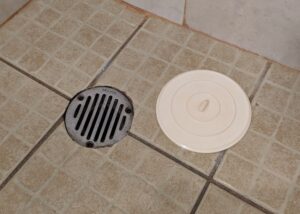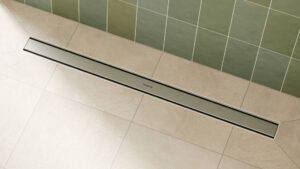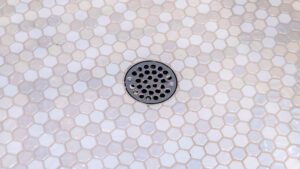If youve noticed that your shower drain wont hold water, it can be a frustrating and puzzling problem. Not only does it affect your daily routine, but it can also signal deeper issues within your plumbing system. Understanding why this is happening can lead you to effective solutions and prevent further damage. Let’s explore the common causes and how you can address them.

Understanding the Plumbing System
Your shower drain is part of a complex plumbing system that includes pipes, traps, and vents. When any of these components malfunction, it can affect how water drains or holds in your shower. Recognizing the role of each component helps in diagnosing the issue.
Common Causes of Shower Drain Issues
Several factors might cause your shower drain not to hold water. Here are some of the usual suspects:
- Clogged Pipes: Hair, soap scum, and debris can clog pipes, leading to drainage issues.
- Damaged Drain Seal: A worn-out or broken seal can cause leaks and prevent water from staying in the drain.
- Improper Installation: If your plumbing was not installed correctly, it might lead to persistent problems.
- Vent Blockage: Vents allow air to circulate through the plumbing system; a blockage can disrupt water flow.
Diagnosing the Problem
Identifying the root cause of why the shower drain wont hold water involves thorough inspection and testing. Here’s how you can systematically diagnose the issue:
Visual Inspection
Start by checking the drain for visible obstructions. Remove any debris that might be blocking the water flow. Inspect the seal to ensure it’s intact and not worn out.
Testing the Water Flow
Run water into the shower drain and observe how quickly it drains. If water pools and drains slowly, it might suggest a clog or vent issue. Fast draining can indicate a seal problem.
Step-by-Step Solutions
Once you’ve identified the problem, follow these steps to fix your shower drain:
Clearing Clogged Pipes
Use a plunger or a plumber’s snake to remove clogs. For persistent clogs, a chemical drain cleaner might be necessary. For more eco-friendly options, consider natural solutions as suggested in this guide.
Fixing the Drain Seal
If the drain seal is damaged, replace it with a new one. Ensure it fits snugly to prevent leaks and hold water effectively.
Addressing Installation Issues
If improper installation is the cause, it might be best to call a professional plumber for a more comprehensive solution. DIY fixes may not be sufficient for complex installation errors.
Preventive Measures
To avoid future problems with your shower drain, consider implementing these preventive measures:
Regular Maintenance
Regularly clean your shower drain to prevent clogs. Use a drain cover to catch hair and debris. For a deeper clean, read this deep cleaning guide.
Inspecting and Replacing Seals
Periodically check the condition of your drain seal. Replace it at the first sign of wear to maintain its effectiveness.
When to Call a Professional
Sometimes, despite your best efforts, the problem persists. In such cases, calling a professional plumber can save time and prevent further damage. They have the expertise to handle complex plumbing issues.
Signs You Need Professional Help
- Persistent drainage problems despite DIY efforts.
- Visible damage to plumbing components.
- Unusual noises from the drain or pipes.
Conclusion
A shower drain that wont hold water is more than just an inconvenience. It can be a sign of underlying issues that need attention. By understanding the causes and solutions, you can effectively address the problem and maintain a functional shower. Regular maintenance and timely interventions can keep your plumbing system in top condition.

Frequently Asked Questions
Why does my shower drain keep clogging?
Frequent clogs can result from hair, soap, and other debris building up in the pipes. Regular cleaning can help prevent this.
Can I fix a shower drain on my own?
Yes, minor issues like clogs or seal replacements can often be handled with DIY methods. For more complex problems, professional help is recommended.
How often should I clean my shower drain?
Regular cleaning every few weeks can prevent clogs and maintain smooth water flow. For detailed cleaning tips, check out this external guide.
This article contains affiliate links. We may earn a commission at no extra cost to you.




